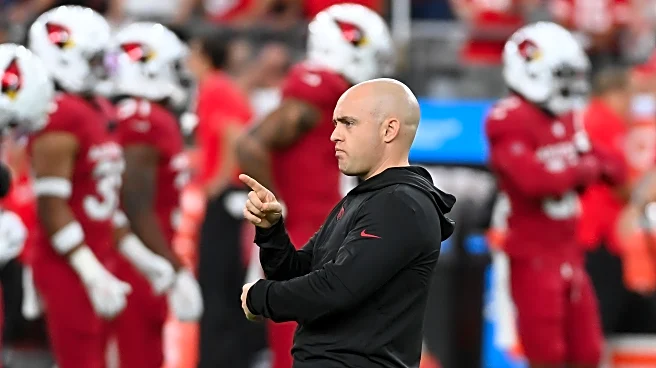What is the story about?
What's Happening?
Darian Mensah, a college football player, has signed a multi-million-dollar contract with Duke University, marking a significant change in his family's financial situation. Mensah, who was under-recruited out of high school, became a sought-after figure in the transfer portal, leading to a bidding war among schools. His journey from a little-known player to a high-paid athlete is emblematic of the new era of athlete compensation in college sports. This development has allowed Mensah to support his family financially, purchase luxury vehicles, and start a non-profit foundation to aid underprivileged athletes in his hometown.
Why It's Important?
Mensah's story highlights the transformative impact of the new athlete compensation system in college sports, where players can now receive direct payments from schools. This shift has significant implications for the college sports industry, potentially altering recruitment dynamics and financial strategies for both players and institutions. Mensah's case exemplifies how overlooked athletes can leverage their talent for substantial financial gain, challenging traditional pathways and expectations in college sports. This development may lead to increased competition among schools to attract top talent, further intensifying the financial stakes in college athletics.
What's Next?
Mensah is set to play in a nationally televised game against Illinois, providing him with a platform to showcase his skills on a larger stage. His performance could further solidify his status as a top player and influence future recruitment and compensation trends in college sports. Additionally, Mensah's upcoming game against his former team, Tulane, is anticipated to be a significant event, drawing attention to the evolving landscape of college athletics and the role of athlete compensation in shaping player careers.
Beyond the Headlines
The rise of athlete compensation in college sports raises ethical and cultural questions about the commercialization of amateur athletics. It challenges traditional notions of college sports as a purely educational endeavor and introduces new dynamics in player-school relationships. This shift may also impact the competitive balance between power and non-power conference schools, as financial incentives become a key factor in player decisions.














